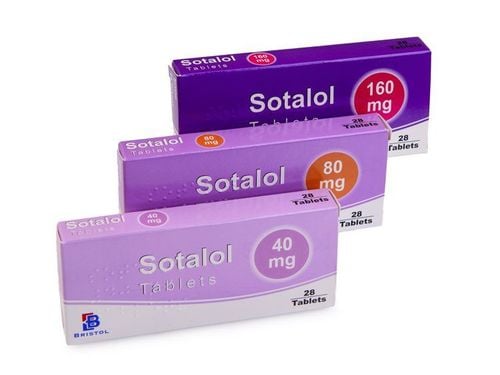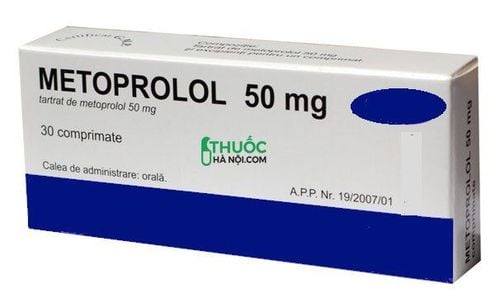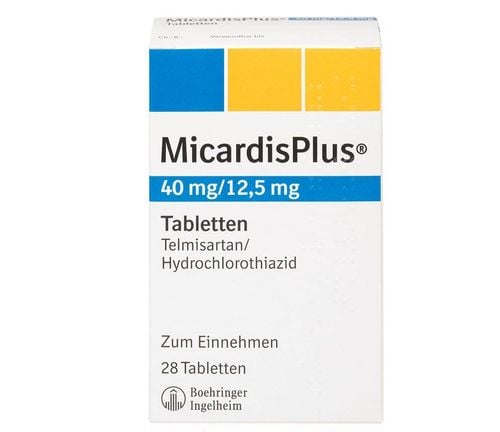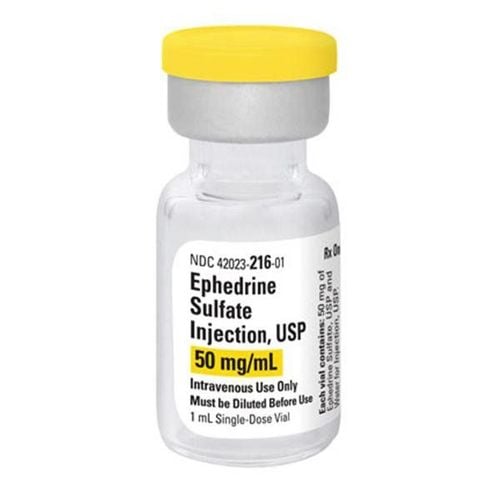This is an automatically translated article.
The article is professionally consulted by Master, Doctor Hoang Thi Hoa - Cardiologist - Department of Medical Examination and Internal Medicine - Vinmec Ha Long International General Hospital.Atrial tachycardia (SVT), also known as supraventricular tachycardia, is a manifestation of many types of heart rhythm problems that originate in the ventricles within the atria.
1. Symptoms of atrial tachycardia
In a normal heart, the beat ranges from 60-100 beats/min. A heart rate greater than 100 beats per minute is called tachycardia. This occurs when the electrical impulses that coordinate the heartbeat are not working properly or the ECG is irregular. Ventricular tachycardia may come and go suddenly, alternating between normal heartbeats. Its symptoms can last from a few minutes to a few days and in some people there are no symptoms. Ventricular tachycardia becomes worrisome if it happens frequently, especially if someone has damaged heart or has other health problems.
Signs and symptoms of supraventricular tachycardia may include:
A flutter in the chest. Tachycardia (feeling like palpitations) Shortness of breath Dizziness Dizziness Sweating Fainting In infants and young children, the signs and symptoms of atrial tachycardia are often difficult to identify. Signs such as sweating, poor appetite, pale skin, heart rate greater than 200 beats per minute in neonates can be considered signs of supraventricular tachyarrhythmias.
Electrocardiogram Atrial tachycardia is not usually life-threatening unless there are other heart disorders, but once discomfort occurs, it is advisable to consult a doctor. Symptoms such as shortness of breath, weakness, dizziness, and fainting can be dangerous signs of a serious health condition. Patients should seek emergency medical attention if they suddenly or frequently experience any of the above signs and symptoms.

Ngất xỉu là triệu chứng nguy hiểm mà bệnh rối loạn nhịp tim
2. Causes of supraventricular tachycardia
For some people, supraventricular tachycardia is associated with obvious triggers, such as psychological stress, lack of sleep, or lack of physical activity. In addition, some other causes can lead to cardiac arrhythmias such as:
Heart failure Thyroid diseases Heart disease Chronic lung disease Smoking Alcohol abuse Consuming too much caffeine Using drugs and substances Addictions such as cocaine and methamphetamine Excessive use of over-the-counter medications such as asthma, cold and allergy medications Surgery Pregnancy Having Wolff-Parkinson-White syndromes
3. Classification of supraventricular tachycardia
Supraventricular tachycardia occurs when the electrical connections of the heart are faulty and triggered causing the rhythm of the heart to become irregular. When this happens, the heart rate speeds up too quickly and there isn't enough time for the heart to fill up before it contracts. Unfilled contractions of the heart can cause dizziness or lightheadedness because the brain is not getting enough blood and oxygen
There are 3 common types of supraventricular tachycardia:
Recurrent atrioventricular tachycardia (Atrial fibrillation) AVNRT) is the most common type of ventricular tachycardia in both men and women of all ages, although it tends to occur more frequently in young women. Atrioventricular tachycardia (AVRT) is the second most common type of ventricular tachycardia. It is usually diagnosed in young people. Atrial tachycardia is the more commonly diagnosed type of supraventricular tachycardia in people with existing heart conditions. Unlike AVNRT and AVRT, which always involve the AV node as part of a faulty connection, atrial tachycardia does not involve the AV node. Other types of supraventricular tachycardia include: Sinus tachycardia; Inappropriate sinus tachycardia (IST);multifocal tachycardia (MAT); Ectopic tachycardia (JET); Non-arrhythmic tachycardia (NPJT).
4. Risk factors for atrial tachycardia
Ventricular tachycardia is the most common type of arrhythmia in infants and children. It also tends to occur more frequently in women, especially pregnant women, although it can occur in both sexes.
Other factors that can increase your risk of supraventricular tachycardia include:
Certain types of supraventricular tachycardia are more common in middle-aged and older people People with conditions such as coronary artery disease, heart problems, heart surgery, narrowed heart arteries, heart attack, abnormal heart valves, previous heart surgery, heart failure, cardiomyopathy, and other heart damage that increase your risk of developing supraventricular tachycardia . People with congenital heart disease because they were born with abnormal heart rhythms are at high risk of affecting the heart rhythm. People with thyroid problems. An overactive or underactive thyroid can increase the risk of supraventricular tachycardia Overuse of certain over-the-counter medicines such as cough and cold and certain prescription medications can contribute to heart rhythm problems. supraventricular tachycardia The risk of developing coronary artery disease and high blood pressure is greatly increased in patients with uncontrolled diabetes. Sleep apnea causes disruption of breathing, which can increase the risk of supraventricular tachycardia. Nicotine use and addictive substances such as drugs, amphetamines, cocaine can strongly affect the heart and cause supraventricular tachycardia.

Bệnh tim bẩm sinh có thể là nguyên nhân gây rối loạn nhịp tim
5. Prevention of supraventricular tachycardia
If left untreated and frequent episodes of supraventricular arrhythmias can lead to weakening of the heart and lead to heart failure, especially if the body is suffering from other health problems. In extreme cases, a supraventricular arrhythmia can cause unconsciousness or cardiac arrest. To prevent supraventricular tachycardia, it is important to know the causes and proactively avoid them. They cause it by:
Eat a heart-healthy diet Increase physical activity Avoid smoking Maintain a healthy weight Limit or avoid alcohol Reduce stress Get more rest Use medications Do not prescribe it with caution, as some cold and cough medicines contain stimulants that can cause a rapid heartbeat Avoid stimulants such as cocaine and methamphetamine For most people with tachycardia above Unfortunately, moderate amounts of caffeine do not trigger an episode. However, large amounts of caffeine should be avoided.
Regularly check and monitor the heart rate, detect symptoms and heart and body activity while suffering from supraventricular arrhythmias.
To protect heart health in general and detect early signs of cardiovascular disease, customers can sign up for Cardiovascular Screening Package - Basic Cardiovascular Examination of Vinmec International General Hospital. The examination package helps to detect cardiovascular problems at the earliest through tests and modern imaging methods. The package is for all ages, genders and is especially essential for people with risk factors for cardiovascular disease.
Master. Hoang Thi Hoa has more than 10 years of experience in the field of Cardiology, especially in the field of cardiovascular emergency and echocardiography. Doctor Hoa used to be the Deputy Head of Cardiology Department of Quang Ninh General Hospital before working at Vinmec Ha Long International Hospital.
If you notice unusual health problems, you should visit and consult with a specialist.
Please dial HOTLINE for more information or register for an appointment HERE. Download MyVinmec app to make appointments faster and to manage your bookings easily.
Reference source: Mayoclinic.org












